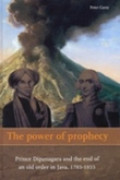
The power of prophecy; Prince Dipanagara and the end of an old order in Java,…
National hero, Javanese mystic, pious Muslim and leader of the ‘holy war’ against the Dutch between 1825 and 1830, the Yogyakarta prince, Dipanagara (1785-1855, otherwise known as Diponegoro), …
- Edisi
- -
- ISBN/ISSN
- 9789067183031
- Deskripsi Fisik
- xxx, 970 p.; 22 cm.
- Judul Seri
- -
- No. Panggil
- 959.8 CAR p
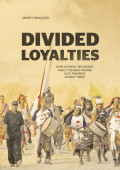
Divided loyalties:displacement, belonging and citizenship among East Timorese…
Drawing on extensive ethnographic fieldwork, this study explores the ideas of belonging and citizenship among former pro-autonomy East Timorese who have elected to settle indefinitely in West Timor…
- Edisi
- -
- ISBN/ISSN
- 9781760462376
- Deskripsi Fisik
- xvi, 204p.: ill.
- Judul Seri
- -
- No. Panggil
- 959.87032 DAM d
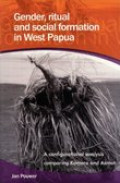
Gender, ritual and social formation in West Papua :A configurational analysis…
This study, based on a lifelong involvement with New Guinea, compares the culture of the Kamoro (18,000 people) with that of their eastern neighbours, the Asmat (40,000), both living on the south c…
- Edisi
- -
- ISBN/ISSN
- 9789067183253
- Deskripsi Fisik
- xii, 300 p.
- Judul Seri
- -
- No. Panggil
- 953.0049912 POU g
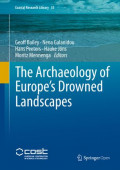
The archaeology of Europe’s drowned landscapes
This open access volume provides for the first time a comprehensive description and scientific evaluation of underwater archaeological finds referring to human occupation of the continental shelf a…
- Edisi
- -
- ISBN/ISSN
- 9783030373672
- Deskripsi Fisik
- xxviii, 561p. : ill.
- Judul Seri
- -
- No. Panggil
- 940.1 ARC a
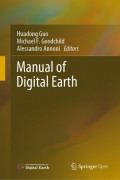
Manual of digital earth
This open access book offers a summary of the development of Digital Earth over the past twenty years. By reviewing the initial vision of Digital Earth, the evolution of that vision, the relevant k…
- Edisi
- -
- ISBN/ISSN
- 9789813299153
- Deskripsi Fisik
- xix, 852p. : ill.
- Judul Seri
- -
- No. Panggil
- 910.285 MAN m

Key Concepts in Public Archaeology
This book provides a broad overview of the key concepts in public archaeology, a research field that examines the relationship between archaeology and the public, in both theoretical and practical …
- Edisi
- -
- ISBN/ISSN
- 9781911576419
- Deskripsi Fisik
- XIV, 273 p.
- Judul Seri
- -
- No. Panggil
- 930.1 KEY k

The Petrie Museum of Egyptian Archaeology:Characters and Collections
The Petrie Museum of Egyptian Archaeology first opened its doors in 1915, and since then has attracted visitors from all over the world as well as providing valuable teaching resources. Named afte…
- Edisi
- -
- ISBN/ISSN
- 9781910634042
- Deskripsi Fisik
- 120 p.
- Judul Seri
- -
- No. Panggil
- 932.00744213 STE p
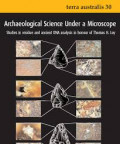
TA 30 - Archaeological Science Under a Microscope
These highly varied studies, spanning the world, demonstrate how much modern analyses of microscopic traces on artifacts are altering our perceptions of the past. Ranging from early humans to moder…
- Edisi
- -
- ISBN/ISSN
- 9781921536854
- Deskripsi Fisik
- -
- Judul Seri
- -
- No. Panggil
- 931 NUG t
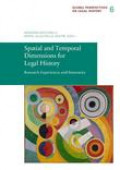
Spatial and temporal dimensions for legal history :Research Experiences and I…
"The spatiotemporal conjunction is a fundamental aspect of the juridical reflection on the historicity of law. Despite the fact that it seems to represent an issue directly connected with the quest…
- Edisi
- -
- ISBN/ISSN
- 978394773056
- Deskripsi Fisik
- 300 p.; 23 cm.
- Judul Seri
- -
- No. Panggil
- 901 SPA s
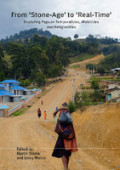
From 'Stone-Age' to 'Real-Time':Exploring Papuan Temporalities, Mobilities an…
There are probably no other people on earth to whom the image of the ‘stone-age’ is so persistently attached than the inhabitants of the island of New Guinea, which is divided into independent …
- Edisi
- -
- ISBN/ISSN
- 9781925022421
- Deskripsi Fisik
- XIII, 270 p.
- Judul Seri
- -
- No. Panggil
- 995.1 MUN f
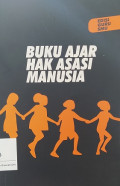
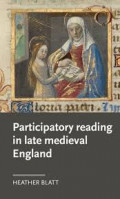
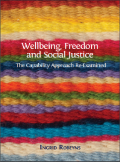
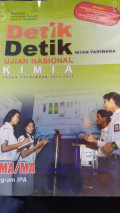
 Karya Umum
Karya Umum  Filsafat
Filsafat  Agama
Agama  Ilmu-ilmu Sosial
Ilmu-ilmu Sosial  Bahasa
Bahasa  Ilmu-ilmu Murni
Ilmu-ilmu Murni  Ilmu-ilmu Terapan
Ilmu-ilmu Terapan  Kesenian, Hiburan, dan Olahraga
Kesenian, Hiburan, dan Olahraga  Kesusastraan
Kesusastraan  Geografi dan Sejarah
Geografi dan Sejarah